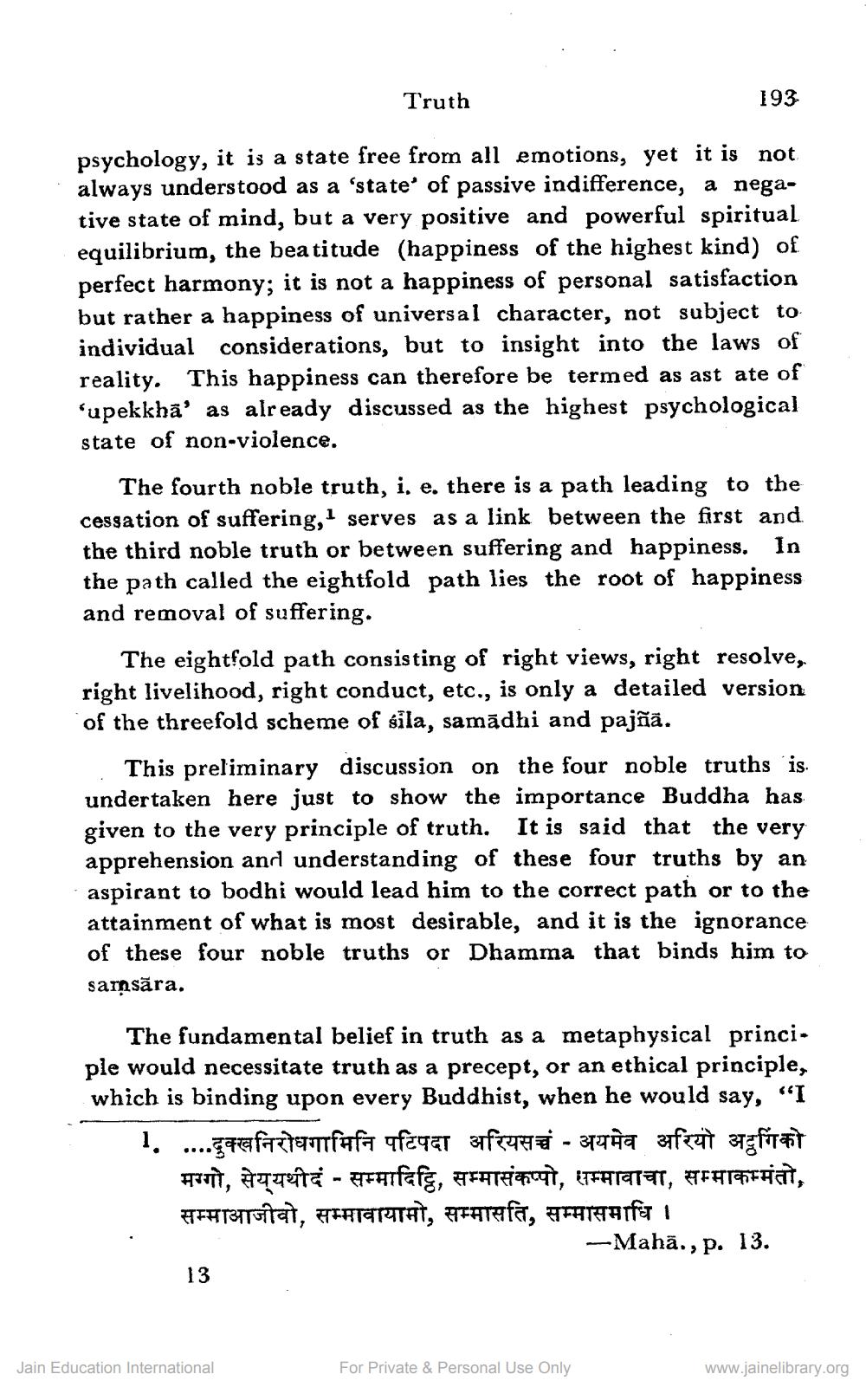________________
Truth
psychology, it is a state free from all emotions, yet it is not always understood as a 'state' of passive indifference, a negative state of mind, but a very positive and powerful spiritual equilibrium, the beatitude (happiness of the highest kind) of perfect harmony; it is not a happiness of personal satisfaction but rather a happiness of universal character, not subject to individual considerations, but to insight into the laws of reality. This happiness can therefore be termed as ast ate of 'upekkha' as already discussed as the highest psychological state of non-violence.
The fourth noble truth, i. e. there is a path leading to the cessation of suffering,1 serves as a link between the first and the third noble truth or between suffering and happiness. In the path called the eightfold path lies the root of happiness and removal of suffering.
The eightfold path consisting of right views, right resolve, right livelihood, right conduct, etc., is only a detailed version of the threefold scheme of sila, samādhi and pajñā.
193
This preliminary discussion on the four noble truths is. undertaken here just to show the importance Buddha has given to the very principle of truth. It is said that the very apprehension and understanding of these four truths by an aspirant to bodhi would lead him to the correct path or to the attainment of what is most desirable, and it is the ignorance of these four noble truths or Dhamma that binds him to samsăra.
The fundamental belief in truth as a metaphysical princi. ple would necessitate truth as a precept, or an ethical principle, which is binding upon every Buddhist, when he would say, "I
13
1. .... दुक्ख निरोधगामिनि पटिपदा अरियसच्चं - अयमेव अरियो अट्ठगिंको मग्गो, सेय्यथीदं - सम्मादिट्टि, सम्मासंकप्पो, सम्मावाचा, सम्माकम्मंतो, सम्माआजीवो, सम्मावायामो, सम्मासति, सम्मासमाधि |
Mahā., 13.
P.
Jain Education International
For Private & Personal Use Only
-
www.jainelibrary.org




